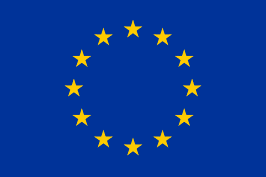NATALIE
What do we do within the NATALIE project?

NATALIE is a Horizon Europe project aimed at mitigating the risks of climate change and its consequences. The project endeavours to achieve success through an ecosystem-based approach by demonstrating nature-based solutions (NBS). NATALIE is focused on delivering innovative and practical solutions to make regions and municipalities climate resilient.
Drinking water for everyone forever?
In Belgium, we take drinking water for granted. There is always drinking water for everyone. However, this is far from obvious. The drinking water supply in South Limburg consists solely of groundwater extraction, and it’s no small amount (23 million m³/year!). Supply and demand are currently reasonably balanced, but our reserves are under pressure. Dark clouds are gathering on the horizon: extreme and prolonged drought combined with overexploitation of our groundwater layers are creating an uncertain future. Groundwater extractions in South Limburg are among the most vulnerable extractions in Flanders.
The need for a broader vision
As a water company, De Watergroep faces the challenges of maintaining the balance between supply and demand. Providing safe and healthy drinking water for everyone is the goal. We must handle our strategic groundwater reserves for South Limburg with care. It is not wise to rely on just one particular source, and we are looking for a broader range of options for drinking water production, especially for this region.
What do we aim to achieve with NATALIE?
Instead of just extracting groundwater, the idea is to create a more balanced system by also injecting water. The term for this is Aquifer Storage and Recovery (ASR), i.e. storing water underground for later usage. The water can come from multiple sources, such as surface water or potentially even wastewater in the future. Of course, the water must be thoroughly purified first.
There exists a cretaceous aquifer in South Limburg that is a deep, water-bearing layer suitable for the ASR principle. This project aims to test this aquifer. Additionally, we want to understand how water moves underground and whether it undergoes quality changes during its journey through the soil. This way, we can determine how much water we can inject and what purification steps we need to apply to recover the water. The goal for the future is to achieve a neutral water balance at the local and possibly even regional level.
NATALIE and Blue Horizon Limburg
Blue Horizon Limburg is the name of our demonstration within the NATALIE project. De Watergroep will collaborate on Blue Horizon Limburg with several partners:
- AGT as a consulting firm to plan and coordinate works in the subsurface
- KWR as a water expertise centre and project support
- VUB to help with modelling and thus calculating the effects of underground water storage
- Aquafin to provide the Sint-Truiden wastewater treatment plant as a location for conducting the ASR demonstration
Blue Horizon Limburg is divided into several phases:
- Preparation phase in which the conditions are examined and necessary preliminary studies are conducted (e.g. technical requirements, hydrogeochemical preliminary study, monitoring plan, etc.)
- Construction phase in which we develop and tender the necessary work to create a 10 m³/h demonstration
- Demonstration of water injection and recovery in the cretaceous aquifer
- Completion phase in which we process the data from the demonstration and draw conclusions based on that data, for example, for upscaling (100 m³/h)
What else does NATALIE do?
NATALIE is a large project. Nature-based solutions (NBS) will be demonstrated at eight different locations within Europe. You can read more about this on the international project website.
Some facts:
- Horizon Europe project
- 43 partners
- Consortium consisting of 8 non-governmental companies, 14 private companies, 8 small and medium-sized enterprises, 12 research/academic institutions, and 1 industrial partner
- NATALIE stands for accelerating and mainstreaming transformative NATure-bAsed solutions to enhance the resiLIEnce to climate change of diverse biogeographical European regions.
The project started in September 2023 and runs for five years. This project is funded by the European Commission under the ‘Horizon Europe’ research and innovation programme under grant agreement No. 101112859.
More information:
